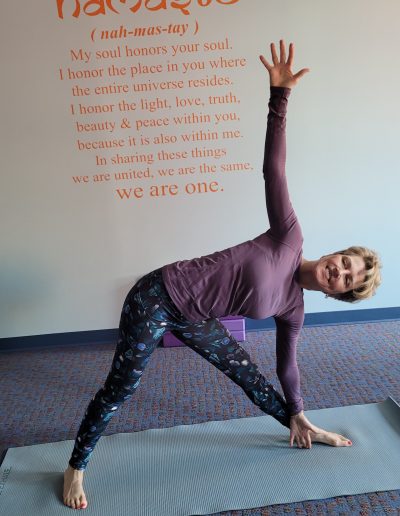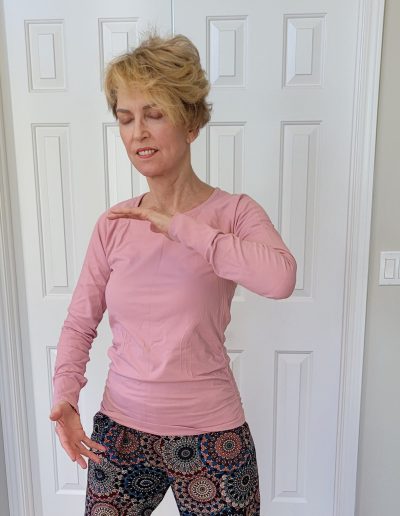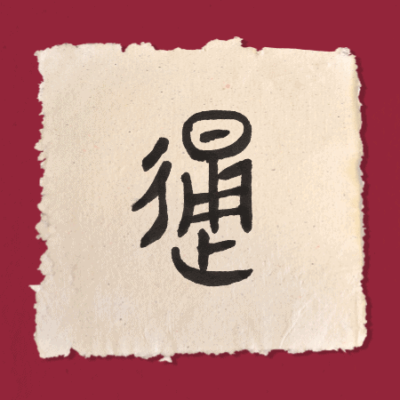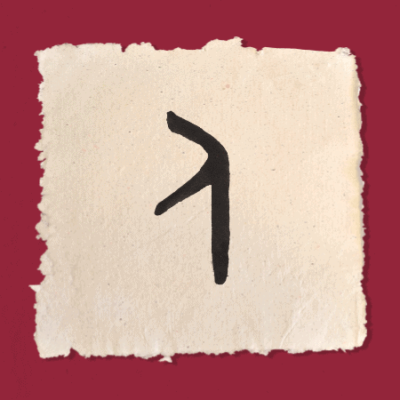What’s the difference between Yoga and Qigong?
Yoga and Qigong teacher Kathleen Armstrong from Cincinnati, Ohio, explains what’s the difference between Yoga and Qigong and answers your questions about combining both ancient practices.
Is Qigong Yoga?
Did you know that Qigong is also known as Chinese Yoga? It’s not surprising - the two practices have a lot in common. Yet they differ in many important aspects. When you think of Qigong, do you think of slow movements and people gathering in the park for their daily practice, while Yoga is more likely to evoke images of dynamic sun salutations and strong warrior poses? In general, Qigong movements are smoother and more flowing than those found in Yoga. Yoga postures can entail a lot of stretching and many require holding a posture for a few breaths. Yoga’s breathing practices, called Pranayama, are designed to have different purposes – everything from calming to detoxifying. Qigong breathing techniques aim to calm the mind and improve the Qi condition in the body.
The origin of Yoga and Qigong
Yoga originated thousands of years ago in India. Qigong emerged in China. They are two different paths with the same goals of strengthening the body, improving health, quieting the mind, cultivating the heart, and fostering personal development and spiritual growth. Yoga and Qigong both include physical, mental, and emotional practices, meditation, and breathwork. Qigong addresses everything from a Qi (energy) level whereas most yoga practices are much more physically oriented. Despite some physical similarities, in Qigong the mind activity, the inner movements and the movement of Qi are usually quite different from those of Yoga.
From Yoga to Qigong
I took my first Yoga class when I was 21 years old, and I just loved what I was learning. I practiced yoga for years and eventually became a teacher. I was working in a girls’ Catholic high school and was lucky enough to be offered the school’s old carriage house for my yoga studio. Since then, I’ve taught the faculty, staff, students, neighbors, and the community in a beautiful former carriage house dating from the 1800s.
But when Covid came, in-person teaching became problematic. I started looking for a healthy practice I could call my own. I came across Ren Xue and the Yuan Qigong system and was surprised at how powerful and healing these practices are. So, I started learning and practicing Yuan Qigong while teaching yoga online.
Qigong really became a healing practice for me. I wanted to look deeper, so I joined the Ren Xue online teacher training program. I had no intention of actually teaching Qigong. I wanted to do it for myself to deepen my knowledge about Qi, and to learn to replenish my Qi, which can diminish after the stress of a busy day or when illness occurs. This was missing in the Yoga teachings I knew. The Qigong teacher training has been an incredible blessing and a wonderful development for me as a Yoga teacher.
Kathleen: “I love getting on my mat, and I love to teach.“
Yoga and Qigong energy flow
It took me a while to understand the concept of Qi (life force energy), the basic building block of all that exists in the universe and the foundation of all Qigong practices. It was also new to me to understand and really feel that everything in the universe is connected through Qi and that I can gather Qi from the universe and increase it inside of me. These Qigong fundamentals were not part of my Yoga practice. When you do Yoga, you can feel the energy (Prana) flowing through you. But I can feel the Qi moving through me in Qigong so much more. Qigong offers an efficient and systematic advancement of the work you can do with Qi that is not really a part of the Yoga I do.
The Qigong state
I start my Yoga classes by settling into the moment and into the space and we practice Pranayama (breathing practices). But I didn't actually have a good understanding of that until I took the Qigong teacher training. From Qigong training, I understood that being in a very calm and relaxed state is actually the most important part of the whole practice, and from there you can always go deeper. I now practice being in a Qigong state outside of my practice, including to help me go to sleep or to settle down when things are bothering me. The state I enter is deeper and calmer than the one I feel in Yoga practice. I am grateful for my Qigong teachers who taught this to me – it’s improved my quality of life.
Yoga vs Qigong - what are the benefits?
Right now in my life, I can't see one without the other. I believe my Qigong practice is the icing on the cake for Yoga. I know that I'm increasing my Qi, making it my own, taking it deeper to flow freely in the meridians, and I'm healing my organs on a very deep level with the practice of the first four methods of Yuan Qigong: Tian Yuan, Di Yuan, Ren Yuan, and Xia Yuan. I know there are yoga teachers who have studied more and know more than I do and they may feel differently, but for me, Qigong feels more specific and effective in the way it works with Qi to help practitioners attain healing and better health. It is also nice to always have a mind activity for the Qigong exercises, to know what you're doing such as gathering Qi from the universe or to know you're affecting your liver or you are balancing Yin and Yang.
But there are benefits in my Yoga practice I have not experienced in my Qigong practice yet. As I am writing this blog, I can't imagine leaving my Yoga practice for many reasons - I need the physical movement: the twists, side bends, and forward and back bends, and I like that I can choose between many different asanas and vary my daily routine. I have always been a mover and Yoga is much more physical than the Qigong practices. I love the stretching, the cardio, and the strengthening I find in Yoga.
In my classes, I talk about the physical, mental, and emotional benefits of Yoga, too. At the end of practice, we do Savasana (also known as corpse pose), laying down on the mat to deeply relax to let all the benefits of the practice seep into every cell. When my students get up off their mats, I often hear "Wow, that's just what I needed." Yoga can be very relaxing!
Spiritual aspects of Yoga and Qigong
The ultimate goal of the Yuan Qigong system and the Ren Xue teachings is realization and wisdom and Yuan Qigong provides a guided path for practitioners to work towards this goal. Yoga also has a path for a practitioner to reach enlightenment or spiritual growth through prescribed social practices that help you to be a better person (not harming or stealing, telling the truth, not being jealous, etc.). There are also internal disciplines to purify habits and find peace within. In my experience, modern Yoga classes do not emphasize the practices to realization. The Yuan Gong system has nine methods that are arranged so that the practitioner can gradually deepen their work on Qi and then, with a good Qi foundation, work safely on the heart and consciousness. Practicing Ren Xue and Yuan Qigong is a life-long journey and joining the courses, workshops and retreats which support practitioners along the way.
Yoga or Qigong?
If you are looking for a more physical practice, Yoga provides a total body practice with many health and spiritual benefits while Qigong works deeply on life force and Qi, promoting a calm state that maintains your health and even promotes healing.
Is it safe to combine Yoga and Qigong
Safety and effectiveness is one of the guiding principles in Yuan Qigong. When mixing Yuan Qigong practice with other methods, it is strongly recommended not to mix Yuan Qigong practice with any other methods that work directly on Qi (energy) or have a significant effect on Qi. Most Yoga methods do not have a strong focus on Qi and can be practiced along with Yuan Qigong.




